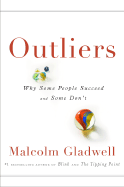According to Malcolm Gladwell, success takes hard works (over 10,000 hrs) and opportunities, upbringing, culture and dumb luck.
On hard work:
It takes roughly 10,000 hrs or 10 years to be prepared for an extraordinary opportunity – like Beetles, Bill Gates and Bill Joys. It’s a nice rounded off number. Surprisingly, the correlation of good math skill is strongly correlated to hard work. And engineering takes good math skill. Does it mean all engineers are hard workers? Perhaps.
On opportunities:
Steve Jobs, Bill Gates, Bill Joys all were born within 6 months of one another in 1955 to catch the wave of computer innovation, Canadian hockey team members were all born near January due to the recruiting cut off time. Bill Gate was fortunate to be do programming at age of 13 with unlimited access to a university mainframe computer.)
On background and culture:
Chinese kids have linguistic advantage due to the simplicity of number counting. This stretches a bit. But Asians do have a legacy of good work ethics, thanks to the rice planting culture, which espouses the cause and effect or reaping what you plant. This is a very different style of feudalism from the western culture. Honestly, I believe Confucius might have more to do with it than rice plantation as people in Northern China don’t farm rice. The high accident rate of Korean Airlines in the past was attributed to the high PDI (Power Distance Index) of the Korean culture, where the lower-ranked officers do not communicate or challenge his/her superiors, thus allowing mistakes being made by the captains. I tend to agree with this theory. Gladwell attributed his success to being surrounded by two intelligent friends from childhood and educated parents, thanks to their heritage and superior standing in Jamaica.
Gladwell is a extraordinary (outlier) story teller. He seems to make simple, mundane stories so interesting, especially the Korean Airlines cockpit conversation. It’s ironic that outliers is a statistic term to describe something that doesn’t fit a normal distribution and some of the theories he proposed would not pass the mustard of a good statistician. I was told by my Six Sigma instructor that outliers are like goldmines because there are some phenomena/variables that have not been accounted for. In this case, Gladwell found a goldmine of a topic for this book. And yes, if all corner cases are accumulated at the same time, there would be outliers. It happens but rarely. If the society can change or improve the factors for success, the normal distribution may get shifted, raising the bar for the society.

